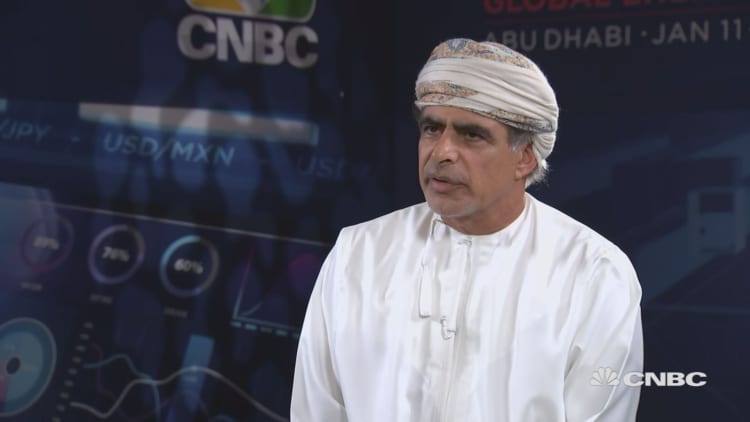
Oman's oil minister thinks President Donald Trump has given OPEC some undue flak. But echoing other Gulf ministers, Mohammed bin Hamad al-Rumhi stressed his desire to steer clear of political animosity with the American leader, appearing keen to give him the benefit of the doubt.
"Sometimes he hasn't been fair," al-Rumhi told CNBC's Hadley Gamble while at the Atlantic Council's Global Energy Forum in Abu Dhabi. "I'm sure he has good intention too, he thinks he is representing the people of the U.S. and he thinks this is the way to do it."
"Nobody wants volatility, I am sure Trump doesn't want volatility, because volatility is difficult to manage," he said. Trump has spent months vocally criticizing the 14-member cartel for its management of oil output, urging the group to keep the taps open and oil prices low. "OPEC is ripping us off," Trump said in a tweet last October.
In December, OPEC members along with Russia reached an agreement to cut their crude production by 1.2 million barrels of oil per day from the market in order to stem the fall in prices, something that further drew Trump's ire.
"Unfortunately there are politics, but sometimes the politics forces people to go to the social media or to CNBC to present their case. And that is the reality of today," the minister said.
But he expressed his eagerness to reach a consensus with Washington that would meet each party's needs when it comes to the oil market, though that may be far easier in theory than in practice.
"I wish we could sit together, I would be honored to sit with him and exchange ideas," al-Rumhi said, adding, "of course I cannot do that. But the best way is to sit together and say where is the convergence."
Oman produces about 900,000 barrels of oil per days, less than one-tenth the volume of OPEC's largest producer Saudi Arabia. The sultanate of 4.6 million is expected to suffer more from the recent drop in oil prices than its larger neighbors, with forecasters expecting its economic growth to slow in 2019. The Omani rial has already come under pressure and analysts have recommended stepping up fiscal austerity measures.


